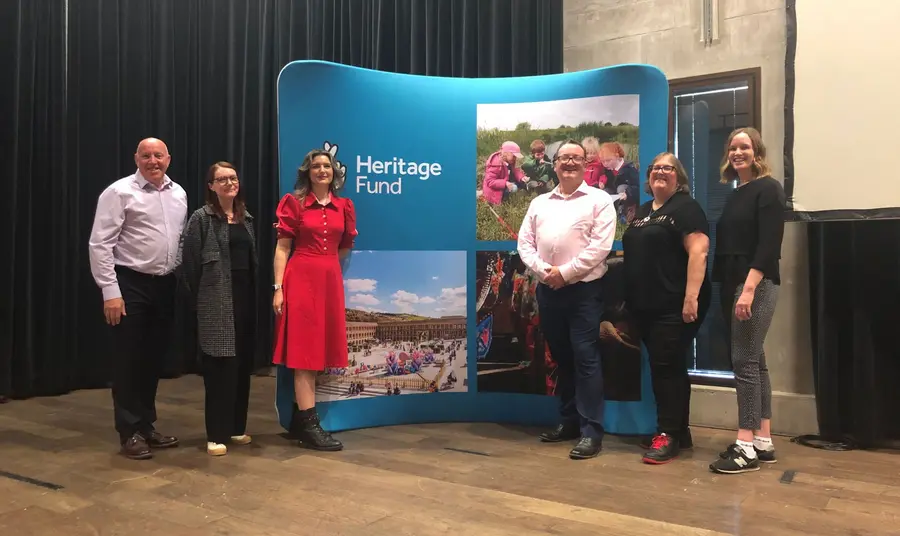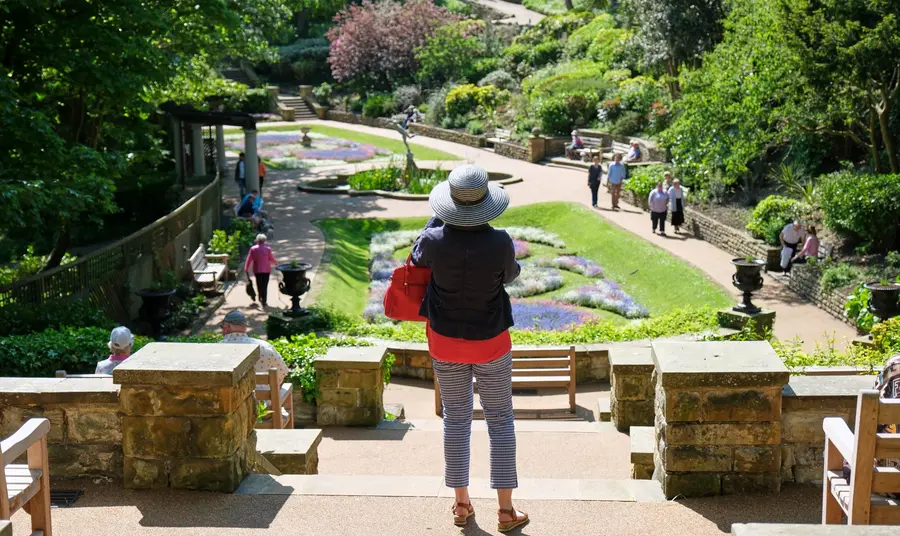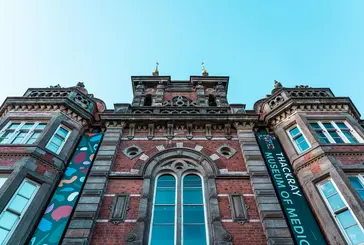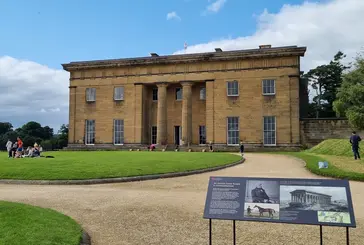A year as Director of England, North: resilience and saving heritage

How time flies! This January I marked one year working at The National Lottery Heritage Fund, and what a year it has been.
We launched our strategy, Heritage 2033 at St Bart’s Hospital in London last March. This set out our long-term commitment to investing in heritage that brings benefits for people, places and our natural environment.
In the North, we spread the word far and wide by going ‘on tour’ to present the strategy to representatives from across the heritage sector at events in Liverpool, Leeds and Newcastle. The management team in the North introduced themselves and met sector colleagues face to face.
The feedback was very positive. Those who attended commented on how these sessions helped raise greater awareness of the new strategy and its key changes, such as increasing the upper threshold for applications to £10million.
The events also provided an opportunity for you to tell us more about the challenges the heritage sector continues to face.

Unprecedented times for the sector
We live in difficult times. We are acutely aware of the challenges faced by organisations and communities. Many organisations that were ordinarily ‘strong’, with good business models and high visitor numbers, are struggling.
These challenges started during the coronavirus (COVID-19) pandemic when many heritage and cultural organisations had to close their doors, reducing their income streams.
The North really suffered. We were in lockdown for longer than other areas in the UK. It’s common knowledge that, because of the stark social statistics we have in the North, the cost-of-living crisis has hit exceptionally hard.
Local authorities no longer have the funds they once had. We are seeing some declare bankruptcy in other areas of the UK, and incredibly tough choices are having to be made. This means culture and heritage budgets are under severe threat.
Through Heritage 2033 and our National Lottery funding we are supporting heritage organisations to innovate and get back on their feet.
We see heritage organisations across the sector fulfilling a range of social needs and being a lifeline for many, on top of their core business of ensuring that heritage is cared for and accessible. Visitor numbers have not yet returned to pre-pandemic levels and businesses are still grappling with adapting to new ways of working.
Through Heritage 2033 and our National Lottery funding we are supporting heritage organisations to test new ways of working and get back on their feet by strengthening their offer. This will ensure that the heritage sector continues to be a ‘star attraction’, helping to promote the North of England as a vibrant place to live, work and visit.

Building resilience
In the North we have seen an increased number of applications from heritage organisations focusing on strengthening their resilience. These projects can cover a range of needs but, essentially, they involve taking stock and planning for the future.

Some of the resilience projects we've recently funded include:
- Thackray Museum of Medicine in Leeds was awarded £228,911 to build relationships with new audiences and share the fascinating story of medical innovation in new ways through events and a volunteer programme.
- The Piece Hall, Halifax, received £650,600 to support new staff posts, increasing capacity to develop new commercial activities and exciting events.
- Urban Green was awarded £221,077 to widen access to nature-rich parks and allotments in Newcastle, focusing on business planning, community engagement and new green initiatives to reach Net Zero and biodiversity targets.
- Calderdale Metropolitan Borough Council received £249,878, enabling them to form the Calderdale Heritage Network to foster collaboration, provide support, and build a stronger heritage landscape within the borough.
- Saltaire Collection in Shipley was awarded £93,172 to recruit professional support to improve business planning and make the collection available to diverse communities through engagement activities.
Resilience projects enable organisations to pivot; to test new ways of engaging new audiences, to trail new income streams, to build capacity in business areas, and to strengthen governance. Organisational sustainability is one of our four investment principles which we ask all applicants to respond to when they come to us for funding.
Heritage saved for the future
Despite all the odds, in the last year I have seen some fantastic projects completed including South Cliff Gardens in Scarborough and Sheffield General Cemetery.
These two wonderful sites have been restored and removed from the Heritage at Risk Register – thanks to National Lottery players – and are now beautiful green heritage spaces, bursting with wildlife, for communities to enjoy.
There continues to be a strong link between heritage and culture in the North of England. The Heritage Fund was a major partner in supporting LEEDS 2023 to deliver work such as Studio Morrison’s Moon Palace – a travelling observatory inspired by the work of the civil engineer and astronomer, John Smeaton. It took people on a magical mystery tour of the dark skies across East Leeds.
This year, Wakefield will celebrate their own year of culture and next year we will join Bradford in celebrating the UK City of Culture 2025.

A highlight of my first year was the reopening of Belsay Hall and Gardens. We awarded this project £3.5m to carry out vital repairs to the Greek Revival Hall and medieval castle. The Grade II Listed gardens are now accessible for everyone to enjoy.
It’s a must see! A stunning setting with plenty to keep any age entertained – and a wonderful place to enjoy this National Lottery Open Week.
Funding for your heritage project
Is your organisation looking for help with planning for a sustainable and resilient future?
- Discover tips from those involved in our Business Support and Enterprise campaign.
- Be inspired by projects we’ve funded in the North of England and keep up to date by following us on Twitter/X.
- Explore our National Lottery Heritage Grants programme, which is now open for grants from £10,000 to £10m.


